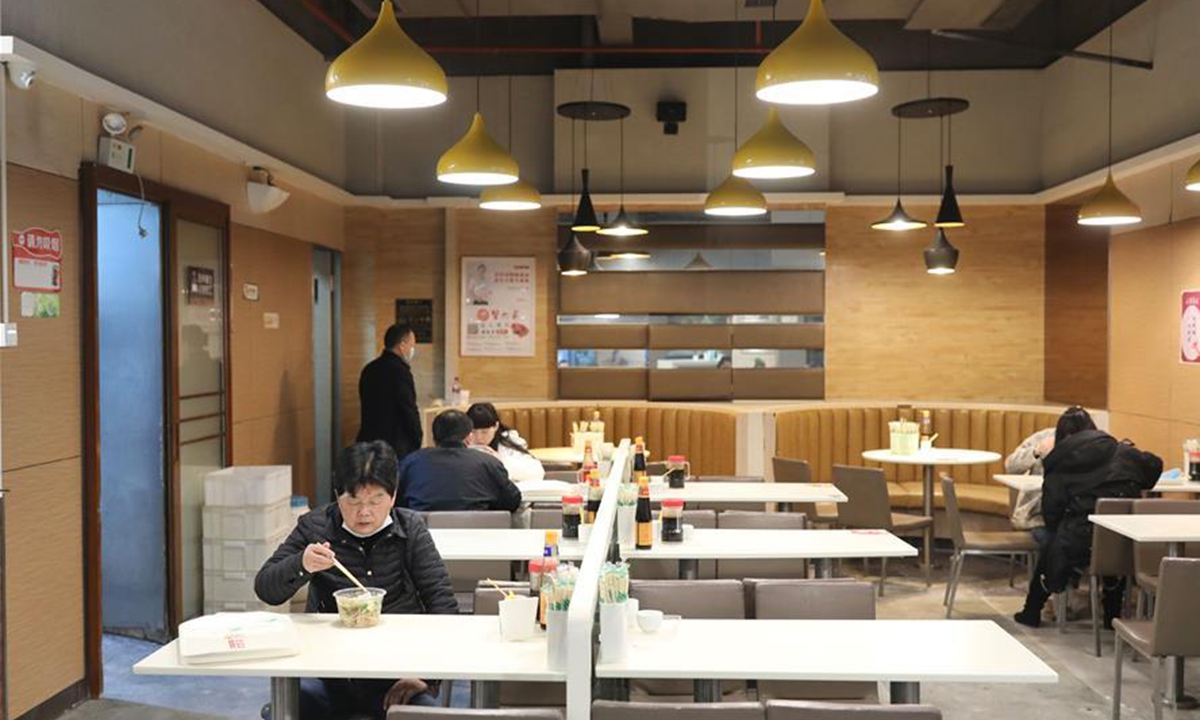If restaurants can’t take app heat, then get out of the kitchen
By Lu Yuanzhi Source: Global Times Published: 2020/9/18 21:08:40

Photo: Xinhua
When you hang out with your friends, what is your biggest headache? Can identifying where to have a meal be ranked as one of the top three?
It was my biggest headache, but has been healed by Dianping, a popular review and rating app in China that helps find local restaurants, shops and business, just like Yelp. When I become confused at what to order, the most efficient and time-saving way for me is to just touch the smartphone screen, and select a restaurant among the top. On most occasions, the selected ones will not let you down.
Generally, after the meal, I like to write a comment and give a rating for the restaurant, hoping it will help other users. I suppose this is a good way to leave suggestions, and motivate the restaurant to improve its cuisine and service.
This process has become a common practice among many Chinese, especially young people. Even many food bloggers see the rating and reviews on Dianping a critical criterion to evaluate a restaurant.
Days ago, a well-known Chinese vlogger posted a video on Weibo that showed what a dining experience would be like in a restaurant ranked the last among almost 1,300 options around the area. Having tasted Chinese steamed buns, or baozi in Chinese, as the vlogger ordered, he said that the baozi was "very greasy." It came "with thick coating but less stuffing" and the "16 pieces of such baozi do not deserve 100 yuan (around US$14.8)."
The restaurant, which is a time-honored one, released a statement on Weibo, saying it had reported this video to the police. It claimed the review was "slanderous," not based on facts. It demanded the vlogger take the video down. This matter soon became a trending topic among netizens. At present, the restaurant is closed.
Out of curiosity, I found the restaurant only hits a score of 2.79 out of 5.0 on Dianping. What the vlogger described in his video is similar to most of the reviews, nothing too fancy. Can reporting to the police help prevent consumers from expressing negative reviews, or win the hearts of customers?
That the customer is a god is not merely a lip service. At least, businesses should show their respect for consumers. Consumers are granted the rights to express their stance of dining experiences, whether positive or negative. To improve and gain popularity, restaurants are expected to listen to what consumers say and treat it as a reference to boost its cuisine and service. This assists their bid to cater to more customers, rather than condemn the ones who criticize them.
With the development of technology and rising living standards, even time-honored brands should keep pace with customers' dining preferences. They should get used to their fresh spending habits. Reviews and rating can work as motivators urging them to make innovation and enhance their performance.
As the restaurant at the center of the storm has received many other negative criticisms on a food app, it means neither the quality of meal nor its service can meet customers' expectations. It should have modestly accepted the criticism and done something different to improve.
There is an old expression that says, "If you can't take the heat, get out of the kitchen." If you cannot handle pressure, then stop what you are doing. Only those who take heed of criticisms and make improvements accordingly will be the winner.
After all, pride makes one lag behind. Criticism helps one go forward.
The author is a reporter with the Global Times. luyuanzhi@globaltimes.com.cn
Posted in: VIEWPOINT